Celebrating Youth Resilience & Creativity on International Human Rights Day
By: The UN Secretary-General’s Envoy on Youth & Amnesty International’s Global Youth Collective
Youth-led human rights activism has never been an easy task. Even before the COVID-19 pandemic disrupted the lives of people everywhere, many young human rights defenders faced multiple challenges to their activism. Unfortunately, COVID-19 has only further exacerbated the existing barriers for participating meaningfully in civic spaces and for speaking up about injustices.
Increasingly frustrated by inaction or repressive restrictions imposed in the guise of the pandemic, young people have been taking to the streets to protest human rights violations, widespread racial and gender-based violence in particular, as well as call for accountability by the national authorities. Their demands have often been met with repression and violence — an issue raised in the recent joint statement published by the Secretary-General’s Envoy on Youth and OHCHR Special Rapporteurs.
However, a sole focus on the hardship experienced by youth human rights defenders does not do justice to the incredible resilience young people have showcased amidst uncertainty. That is why today, on the occasion of the International Human Rights Day, we are celebrating the lived experiences, successes and struggles of young human rights defenders as they navigate their paths through COVID-19 reality, demonstrating creativity, perseverance and leadership in their own communities.
So, how has COVID-19 pandemic impacted the work of young human rights defenders?
Impacts of Social Distancing & Lockdowns on Human Rights Activism
When social distancing measures were put in place, it meant that in many cases protests, community organizing and physical meetings were no longer possible, affecting various areas of human rights work.
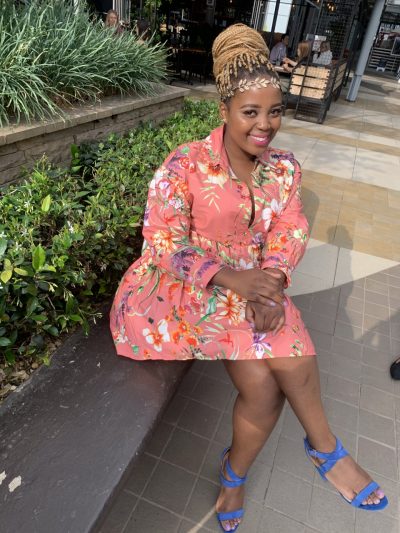 Photo: Lehlogonolo Muthevhuli from South Africa
Photo: Lehlogonolo Muthevhuli from South Africa
For Lehlogonolo Muthevhuli, from South Africa, who has been successfully bringing youth perspectives to human rights issues at a national and global level, it was a drastic change. “I’m used to physically meeting and engaging with people, especially at events. Human rights issues need personal reliability, understanding. We feed off each other’s energy. It allows the other person to trust that you will do all you can to help them in any way possible.”
 Photo: Ikram Jaoui from Morocco
Photo: Ikram Jaoui from Morocco
Ikram Jaoui, from Morocco, is a women’s rights activist who works on preventing sexual and gender-based violence. She found the current conditions restricting too: “While lockdown measures helped to limit the spread of the virus, women and girls who are victims of domestic violence were increasingly isolated from the people and resources who can help them. It made our work more complicated to achieve. The arrival of the pandemic has not stopped our work, but it has limited it as we used to work more offline than online…”
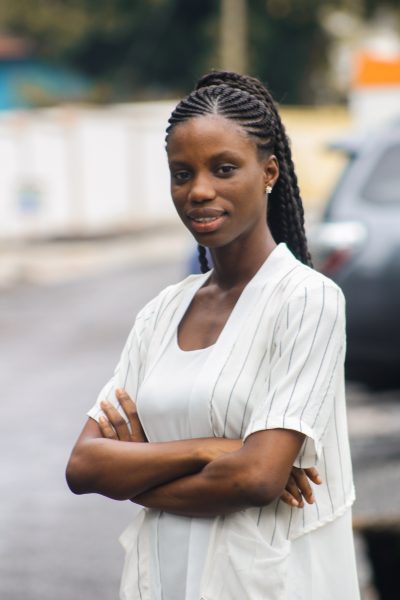 Photo: Belinda Adikie Asamanyuah from Ghana (Credit: Selina Avleshie)
Photo: Belinda Adikie Asamanyuah from Ghana (Credit: Selina Avleshie)
Human rights education has also been challenged by the pandemic. Belinda Adikie Asamanyuah, from Ghana, discovered her passion for activism after realizing most people in her country considered young people who are aware of their human rights to be disrespectful. “I decided to adopt creative and extensive human rights education methods in my community with the aim of changing the hearts and minds of people to appreciate human rights education.” Yet, when COVID-19 started, in-person human rights education was not an option anymore. “One very pressing challenge was the use of online meeting methods which was expensive as a result of high data charges.”
Tech & Social Media: Transforming for the Greater Good
Despite the challenges, Lehlogonolo, Ikram or Belinda didn’t stop pursuing their activism and helping communities. Instead, they turned to digital platforms to adapt their human rights work: “I realized that moving my activism online reaches a wider audience as people can engage on topics from almost anywhere,” said Lehlogonolo.
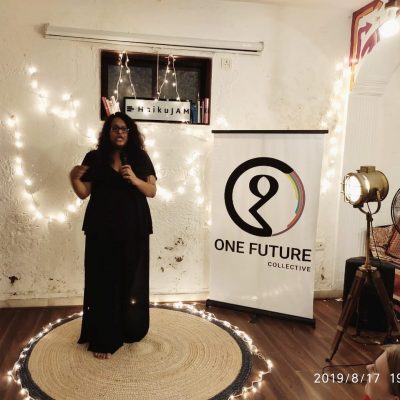 Photo: Vandita Morarka from India
Photo: Vandita Morarka from India
This has been the case for other activists too. Founder and CEO of One Future Collective, Vandita Morarka, is a young queer activist and human rights lawyer from India. She has been fearlessly addressing issues of gender justice, public health and leadership for years. When COVID-19 hit her community, she adapted by innovating and using everyday technology to continue her work on sharing knowledge, providing services and advocating for causes close to her heart.
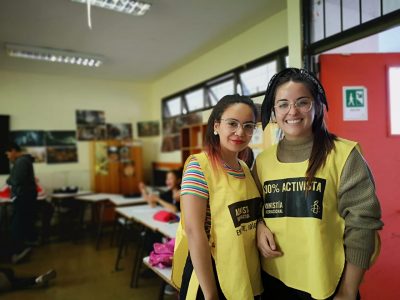 Photo: Allyson Castillo and Karin Watson from Chile (Credit: Valentina Daneken)
Photo: Allyson Castillo and Karin Watson from Chile (Credit: Valentina Daneken)
Allyson Castillo and Karin Watson have been advocating for gender equality and climate justice in Chile, and social media has been key in bringing their messages to the people, mobilizing them through different digital actions, while also reaching politicians and the government.
However, online activism is not the perfect solution for everyone. “COVID-19 has halted a major part of my human rights work in communities with minimal digital access,” said Vandita. Karin agreed. “It’s been a time to reflect and ask ourselves how inclusive our activism is, and how can we actually reach people in all our diversity.”
Mental Health Impacts and the Importance of Communities and Self-Care
Uncertainty and different insecurities caused by the current global health, financial and economic crises, have taken a toll on the mental health of many young people.
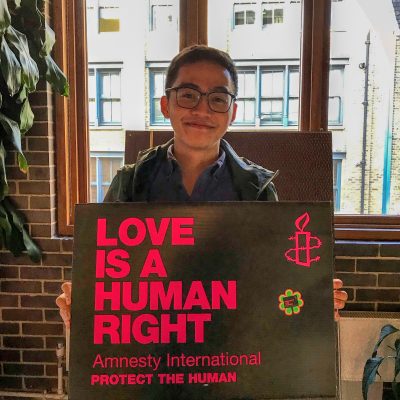 Photo: Manu Gaspar from the Philippines (Credit: Jamie Wong)
Photo: Manu Gaspar from the Philippines (Credit: Jamie Wong)
Manu Gaspar advocates for youth who are at the bottom of cultural, economic and political power structures in the Philippines. When COVID-19 started, it made existing inequalities worse.
“Students under a certain age are restricted from going out, and young working people deal with the lack of government urgency and social protection for our health and wellbeing,” he said.
As a response and a way forward, he stressed the importance of creating safe spaces for youth. “We’ve adapted by creating and sustaining youth-led online communities… We aim to provide a safe and intentional space that fosters a sense of responsibility to and genuine care for each other during this time of crisis.”
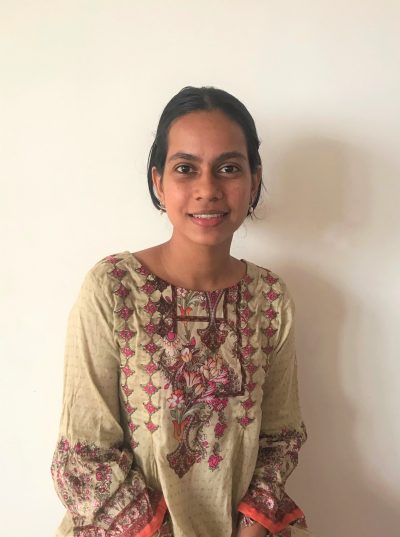 Photo: Nabeela Iqbal from Sri Lanka
Photo: Nabeela Iqbal from Sri Lanka
The importance of having a community and trusted friends to turn to has been essential for Nabeela Iqbal as well. Nabeela is an innovative grassroots activist from Sri Lanka working on peacebuilding, youth civic engagement and girls’ non-formal education, creating knowledge sharing platforms at community level through a female-led youth organization called Sisterhood Initiative. “As much as we engage online, we are mindful of the connections lost offline, and the times we cannot reach the community when they are in need. When the pandemic exhausts me, I turn to the team for solidarity and comfort in our connected work ethic,” she shared.
 Photo: Pashtana Zalmai Khan Durrani from Afghanistan
Photo: Pashtana Zalmai Khan Durrani from Afghanistan
Pashtana Zalmai Khan Durrani started advocating for girls’ education in Afghanistan when she was just seven! Her activism eventually evolved into educating young girls in conflict zones, to help them become independent and responsible leaders, through the LEARN organization. However, due to COVID-19, she has experienced personal trauma and loss.
“When you look around, people depend on you, and that means as a human rights defender you need to focus on making sure you play your role in raising awareness about important issues and finding solutions for it… But you also need time to relax and unplug from everything that is online now. You deserve a break as much as anyone else. You don’t need to win every battle. All you need is to be passionate about the cause.”
Advice for Young Human Rights Defenders (or those who are aspiring to become one!)
Whether you are looking for inspiration to continue your activism, or for creative ideas on how to engage even during COVID-19, we asked young human rights defenders to share ideas, suggestions and words of encouragement.
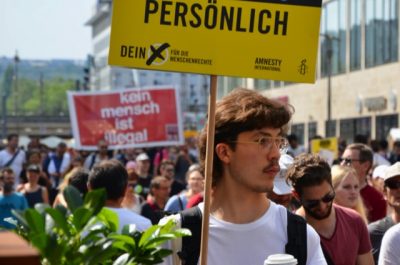 Photo: Christoph Alberts from Germany (Credit: CC-BY 4.0 unteilbar.org, Ahmad M.kadd)
Photo: Christoph Alberts from Germany (Credit: CC-BY 4.0 unteilbar.org, Ahmad M.kadd)
Although some might think that human rights activism should be put on hold until the pandemic is over, Christoph Alberts disagrees. Christoph is a young human rights defender from Germany who forges alliances against human rights violence internationally. As he explains, “The COVID-19 pandemic made it even more clear that structural injustices have fatal consequences, and that it is — especially in these times — even more important to fight for justice and to bring solidarity back to the political agenda!”
 Photo: Vibha Venkatesha from the United States
Photo: Vibha Venkatesha from the United States
The same can be said for Vibha Venkatesha, for whom human rights work is not something that is separate from her life. “Growing up as a woman of colour in the United States, activism was never a choice for me but something that was always part of my life,” she said. Based on her wealth of experience in advocating for different human rights issues, she provided great ideas for activities that you can start now, and some of these do not require use of technology or the internet.
“There are so many ways to have an impact: educating yourself on human rights abuses local to you and around the world, donating and raising funds for grassroots organizations, having difficult conversations with your friends and family to educate them, using your social media platform to draw awareness to issues, or writing letters to government officials!”
As we mark International Human Rights Day, we hope that you were inspired and moved by these stories, and that you learned something new about the power of young people in driving human rights activism around the world. To close, here are a few encouraging words from Manu, one of our many incredible young human rights defenders from the Philippines: “Don’t let COVID-19 stop you from taking action — this is the perfect time to reimagine, find new ways to connect, and build power: We can challenge the oppressive systems in place while ensuring our safety both as an individual and as a collective.”
###
About the Office of the UN Secretary-General’s Envoy on Youth
In 2017, the UN Secretary-General appointed Jayathma Wickramanayake of Sri Lanka as his Special Envoy on Youth and as the youngest senior official in the history of the organization.
Ms. Wickramanayake’s mandate is to harmonize the UN system efforts on youth development, enhance the UN response to youth needs, advocate for the development needs and rights of young people, as well as to bring the work of the United Nations on youth closer to them. The Envoy on Youth also acts as the advisor to and the representative of the Secretary-General on youth related matters.
For more information, follow @UNYouthEnvoy on social media and visit our website at un.org/youthenvoy.
About Amnesty International Global Youth Collective
The Amnesty International Global Youth Collective is a team of Amnesty International youth leaders (under 25 years old) and Amnesty staff with a youth brief from across the global movement who are champions for youth engagement and participation. As champions, they bring the thought leadership that is needed to reach the goals in the International Youth Strategy, and look for opportunities to advance its implementation.
Members of the Collective serve a two-year term, in which they play a role as spokespersons on youth issues and raise youth perspectives both internally and externally to help support and expand the space for greater youth(-led) engagement and participation. They amplify the voice of youth leaders and activists on issues that are relevant and matter to young people within and outside Amnesty International, contribute to the agendas of global, regional and national Amnesty International meetings to advise on how youth perspectives can be included, and provide strategic advice to relevant teams across the movement on integrating youth perspectives across all areas and levels of Amnesty International’s work.
For more information about the Amnesty Global Youth Collective or requests for collaboration you can contact the Global Youth Team at youth@amnesty.org.

